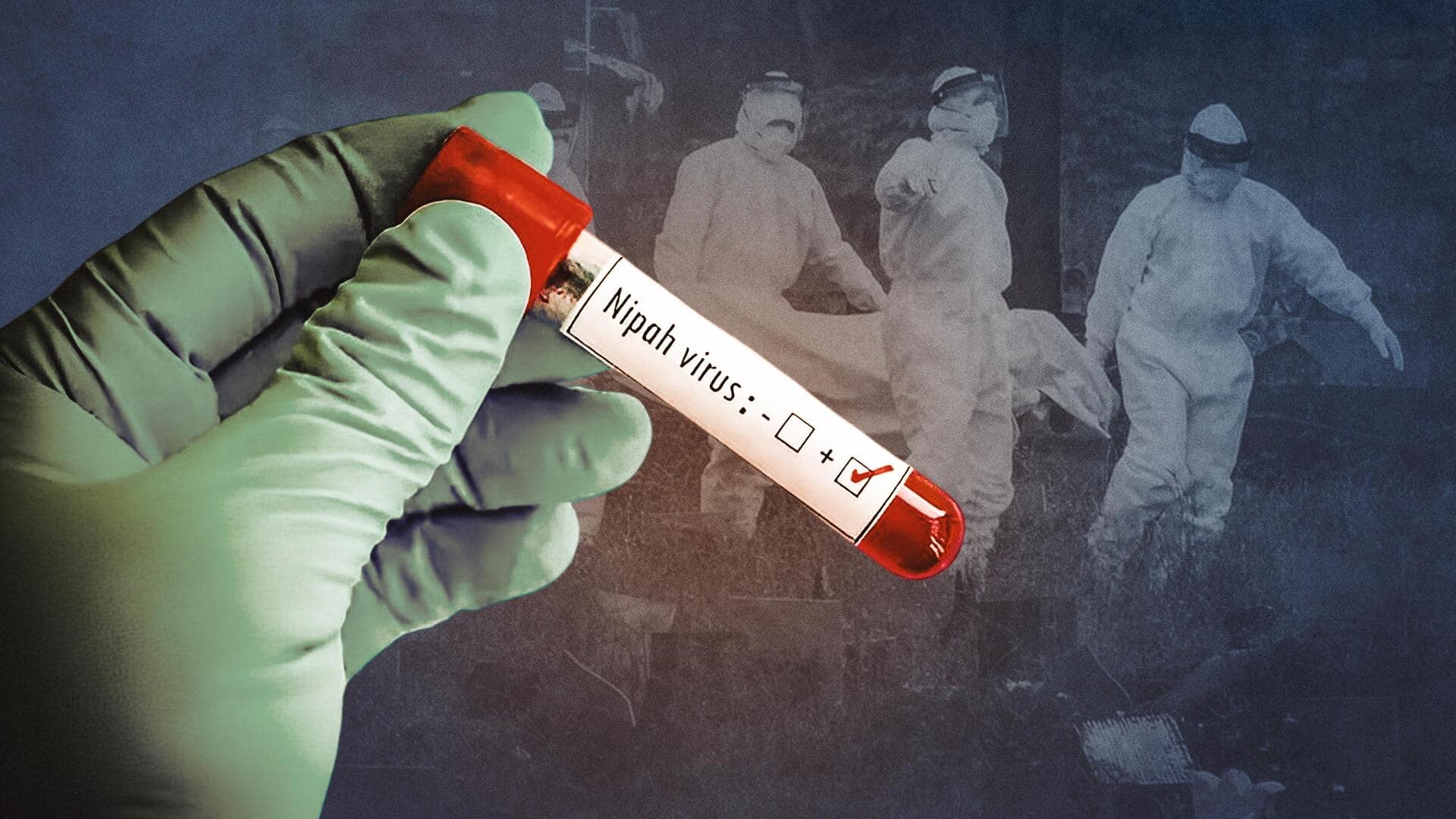
Kerala on alert after 2 suspected Nipah virus deaths
What's the story
Kerala's Health Department has issued a health alert in the Kozhikode district following two "unnatural" deaths at a private hospital, suspected to be caused by the Nipah virus (NiV). The state's Health Minister, Veena George, convened a high-level meeting on Monday night to review the situation. Moreover, three family members of one of the deceased are under observation at the hospital's intensive care unit (ICU), Onmanorama reported.
Context
Why does this story matter?
This development has raised alarm bells as Kerala has previously witnessed Nipah virus outbreaks twice, in 2018 and 2021, especially in Kozhikode and Mallapuram districts. Notably, the first cases in India were reported in West Bengal in 2001. The state witnessed a minor outbreak in 2007, too. The first known NiV case in South India was reported during the 2018 outbreak in Kerala, which saw 17 people succumbing to the zoonotic virus.
Patients
Samples sent for testing
Those kept in isolation in the Kozhikode hospital are relatives of a 49-year-old individual who died on August 30. They include the deceased's sons, aged four and nine, and a 25-year-old brother-in-law. One of the kids is reportedly critical. The other deceased was a 40-year-old man who died on Monday. The samples collected from the deceased and patients in isolation have been sent to the National Institute of Virology (NIV), Pune, for testing.
Details
Understanding the deadly virus
The Nipah virus, named after a Malaysian village where it was first detected, is a zoonotic disease transmitted to humans from animals, contaminated food, or directly from person to person. The virus reportedly originates from fruit bats and can be fatal to humans and animals. Although only a few known outbreaks have occurred in Asia, the virus infects a wide range of animals and causes severe disease or death in people.
What Next?
Symptoms and impact of NiV
The virus can cause a range of illnesses, from asymptomatic to acute respiratory illness and fatal encephalitis (brain swelling). Its symptoms are similar to that of COVID-19, including cough, sore throat, dizziness, drowsiness, muscle pain, tiredness, encephalitis, headache, stiff neck, sensitivity to light, mental confusion, and seizures. The virus can also severely affect animals like pigs, resulting in significant economic losses for farmers, according to the World Health Organization (WHO).
Insights
Preventive measures and treatment challenges
There is no definitive treatment for the Nipah virus. The WHO recommends isolating and treating infected individuals in a hospital setting. However, one can take precautions to protect themselves from it. They include avoiding the consumption of fruits that have fallen on the ground, refraining from feeding pigs, and keeping fruit bats away.